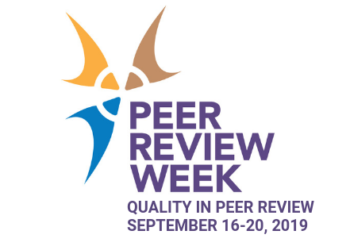In New York, home to a recent measles outbreak, vaccines are at the forefront of many people’s minds as children begin the school year under new regulations eliminating most exceptions that allowed attendance at public and private schools by the unvaccinated. On the eve of Peer Review Week 2019, one can’t help but be reminded of the greatest failure of peer review in recent memory, the infamous Wakefield paper in the Lancet that has had such a long-running pernicious effect on public health.
Although the thoroughly disproven links between vaccines and autism remain prominent in the current rationale for vaccine skepticism, it’s worth noting that the phenomenon is nothing new, and in fact dates back to the 19th century (and in light of vaccine requirements, also worth acknowledging that George Washington mandated that the Continental Army be inoculated against smallpox even in the days before vaccines were invented, via a process called “variolation“). The Washington Post has put together an informative video series on vaccines, and the first chapter looks at the history of such skepticism.
Essentially, they tie it to the short memory of the human species. When the ravages of diseases like smallpox and diptheria can be clearly seen, vaccination rates are high. Once those diseases are largely eradicated, complacency sets in. So even without the Wakefield paper adding fuel to the fire, it’s likely that our distance from the terror of major outbreaks of disease would still be driving people away from availing themselves of one of the great miracles of modern medicine. To quote Scholarly Kitchen founder Kent Anderson (when recently discussing an unrelated matter), “human nature often means learning things again the hard way.”
Discussion
5 Thoughts on "A Historical Look At Vaccine Skepticism"
Check out more primary sources and background on the the very fist anti-vaxxers, here :https://www.wiley.com/network/librarians/digitizing-archive-collections/what-history-can-tell-us-about-the-first-anti-vaccination-movements-and-smallpox In 1806, the Royal College of Physicians sent out a circular enquiring about the success and alleged dangers of vaccination. In the archive today, a letter book contains over 300 pages of replies from correspondents from all around the British Empire: http://WDAgo.com/s/a4f1a36d (yes, that’s a real link to a real archive!)
See an interesting paper in PubMed reflecting Benjamin Franklin’s bitter regret for initial skepticism that led him not to innoculate his son who died at 4 y.o. The authors take the analysis from informed decision-making. https://www.ncbi.nlm.nih.gov/pmc/articles/PMC2653186/
Seeking out the information to make a decision and having it communicated in a meaningful way to the particular person is so important. this is an interesting story from NPR related to public health outreach workshops with pregnant women https://www.npr.org/2019/02/19/695689954/how-one-woman-is-working-to-educate-parents-on-vaccinations
I use the anti-vaxx movement as an example in my critical evaluation of sources class, along with many other examples. This one is hotter than abortion; I typically have 4-5 students out of every 30 who aren’t vaccinated, and who “don’t believe in it.” Evidence does not matter any more to the general public. I think it’s bigger than that humans simply have short memories. We are in the dark ages of information and the enlightenment is discontinued, for most of the population, even those who are college-educated. It’s a good time to get into snake oil!
Ever since people realized that some diseases might be contagious, there has been a tug of war between public good and private freedom–witness the endless disputes over quarantines. One of the first recorded acts of terrorism in the American colonies happened when someone threw a grenade through Cotton Mather’s door because he supported inoculation. Supporters of vaccination are naive if they believe that providing data will resolve this sort of conflict. They should spend more time studying medical history.
The same battle between public good and individual freedom goes for smoking. You have the right to smoke, get ill, and use the public health resources everybody has to provide for through taxes. This means I have to pay for your freedom to make a bad choice. The same goes for vaccinations, for people riding motorcycles without helmets, or cars without safety belts: your freedom should end where my freedom (to not wasting public health money) begins.
